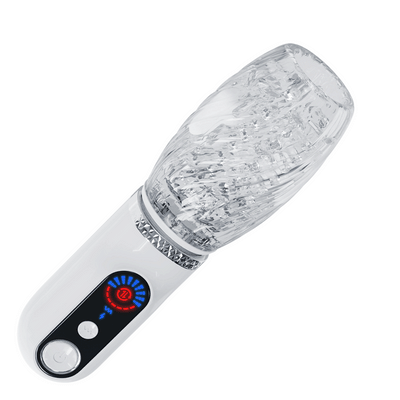How to Increase libido in men?
Libido is the term that describes an individual's sexual desire, a natural response to sexual attraction experienced by both men and women. It's important to note that libido varies from person to person, meaning we don't all have the same level of sexual desire.
Low libido in men can lead to a decreased sexual appetite, impacting one's relationships and self-esteem. Several factors, whether psychological, hormonal, physical, or related to medication, can contribute to a decrease in sexual desire.
Why does libido decrease?
- Psychological Factors: Low self-esteem, poor communication, stress, and anxiety are among the psychological causes that can diminish sexual desire. These conditions can alter the body's response to sexual stimuli, affecting one's libido.
- Hormonal Factors: Low levels of testosterone in the body can result in reduced sexual desire. Insufficient testosterone levels are often caused by hormonal imbalances.
- Medication and Drug Use: The consumption of certain medications or drugs can sometimes lead to side effects such as erectile dysfunction or a loss of sexual desire, impacting one's libido.
- Physical Causes: Physical issues like erectile dysfunction can also contribute to a decrease in libido, as they can affect one's ability to engage in satisfying sexual activities.
How can we increase libido?
Before knowing the different ways to increase libido, it is important to know precisely the origin of this decrease, in order to be able to treat it more effectively.
A punctual or mild drop in libido can be associated with increases in stress and anxiety, while something more continuous can be due to a pharmacological or hormonal origin. In these cases, there are specific treatments such as low testosterone therapy and erectile dysfunction treatments with the aim of recovering sexual health.

There are multiple options to increase libido in men
Anxiety, stress
Anxiety and stress are pervasive obstacles that often hinder the attainment of fulfilling sexual relationships. We all grapple with various concerns or responsibilities that can trigger anxiety or stress, whether it's work-related issues, relationship challenges, or the pressure to achieve satisfying sexual experiences.
These worries can lead to a decline in sexual desire and may even exacerbate sexual dysfunctions such as erectile dysfunction. To effectively address these psychological aspects, consider implementing some of these highly beneficial tips:
- Regulate Sleep Patterns: Ensuring proper and consistent sleep is vital in managing stress and anxiety, as it can positively impact your overall mental well-being.
- Improve Communication with Your Partner: Open and honest communication with your partner can help alleviate relationship-related stressors, leading to better intimacy and a more satisfying sexual connection
- Consult with a Specialist: Seeking guidance from a healthcare professional or a therapist can provide valuable strategies for managing anxiety and stress, both in and out of the bedroom.
- Engage in Regular Exercise: Physical activity is known to reduce stress and anxiety, promoting better mental health and enhancing your overall well-being.
- Maintain a Healthy Diet: A balanced and nutritious diet contributes to your physical and mental health, potentially reducing stress and anxiety levels.
Feeding
Diet plays a significant role in the recovery of libido, and in some cases, excess weight can lead to a decrease in sexual desire among men. Maintaining a healthy diet and managing your weight can stimulate sexual hormones like testosterone, which is crucial for improving one's sexual life.
Certain foods contain components that can enhance blood flow, which is beneficial for libido. Some of these foods include:
- Nuts
- Avocado
- Dark chocolate
- Watermelon
- Ginseng
- Saffron
- Maca
Consuming a diet rich in vegetables, protein, and low in sugar can help reverse low libido levels, contributing to better sexual health. A well-balanced diet not only benefits your physical well-being but can also positively impact your sexual desire and overall satisfaction in intimate relationships.
Sport
Physical exercise is a recommended approach to counteract the decline in sexual desire. Engaging in regular physical activity can offer various benefits, such as improved circulation, leading to enhanced levels of erection and sexual desire. Moreover, exercise is a key method for increasing the production of testosterone, an important hormone for sexual health.
In summary, libido levels are influenced by numerous factors. Engaging in exercise, managing stress, maintaining a healthy diet, and ensuring adequate sleep can naturally boost sexual desire and activity. However, the effectiveness of these strategies can vary based on individual circumstances. As such, it's crucial to consult with a specialist who can identify the root causes and provide tailored solutions for your unique situation.
Try sex therapy
Sexual desire is a multifaceted aspect of human experience, influenced by both psychological and physical factors. Even when a person faces physical conditions that impact libido, such as diabetes, improving the emotional and psychological response to sex can lead to a boost in libido and sexual functioning.
Sex therapy is a valuable approach to address low libido. Individual counseling can assist in tackling negative beliefs about sex, self-esteem issues, and underlying causes of diminished libido like depression and anxiety. Relationship counseling can be beneficial for individuals dealing with factors affecting their sexual desire within a partnership.
Numerous studies suggest that cognitive-behavioral therapy (CBT) can be an effective tool in improving sexual dysfunctions. For instance, a 2018 trial involving 198 women found that CBT can play a positive and effective role in enhancing sexual relationships. Additionally, a 2021 review concluded that CBT can aid in the treatment of erectile dysfunction when combined with drug therapies.
Exploring sex therapy is a constructive step toward addressing and improving low libido, as it can provide the necessary tools to manage both psychological and physical aspects affecting one's sexual desire and functioning.
Quitting Smoking for Improved Libido
Cigarette smoking can adversely affect a person's cardiovascular system, and having good heart health is essential for optimal sexual functioning. Individuals who smoke cigarettes may discover that their energy levels and sex drive experience a positive boost after quitting. It's a step towards not only better overall health but also an improvement in sexual vitality.
Maintain a moderate weight
Scientific research has established a connection between being overweight or obese and experiencing a low sex drive, along with other factors related to decreased fertility. Hormonal imbalances, including low testosterone levels, may contribute to this correlation.
Sustaining a moderate body weight can have a positive impact on an individual's sex drive, benefiting both physical and psychological aspects. Consuming a well-balanced diet and engaging in regular exercise play crucial roles in achieving and maintaining a healthy weight. These lifestyle choices not only promote a healthy body but also boost overall energy levels, which can further enhance one's libido.










Leave a comment